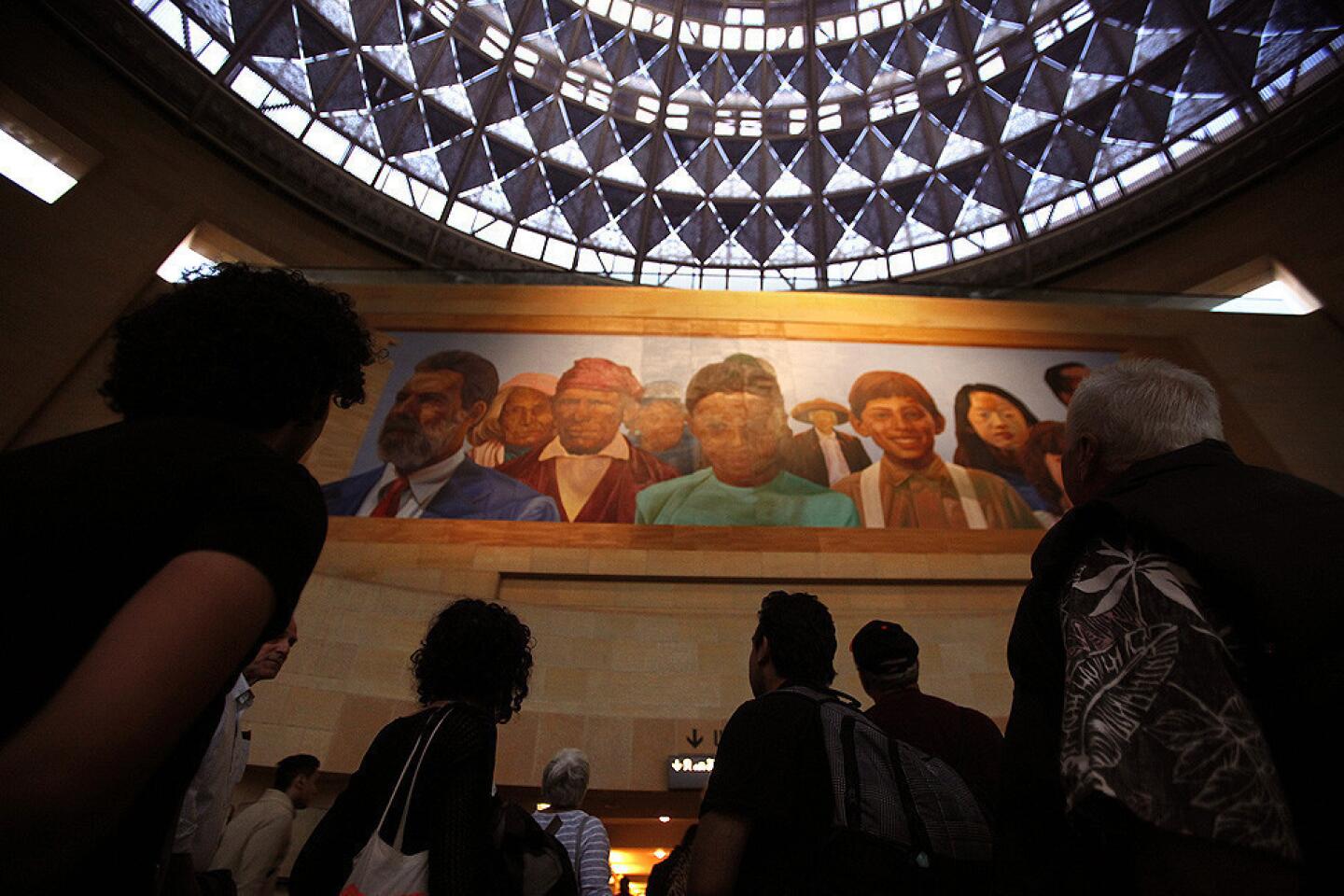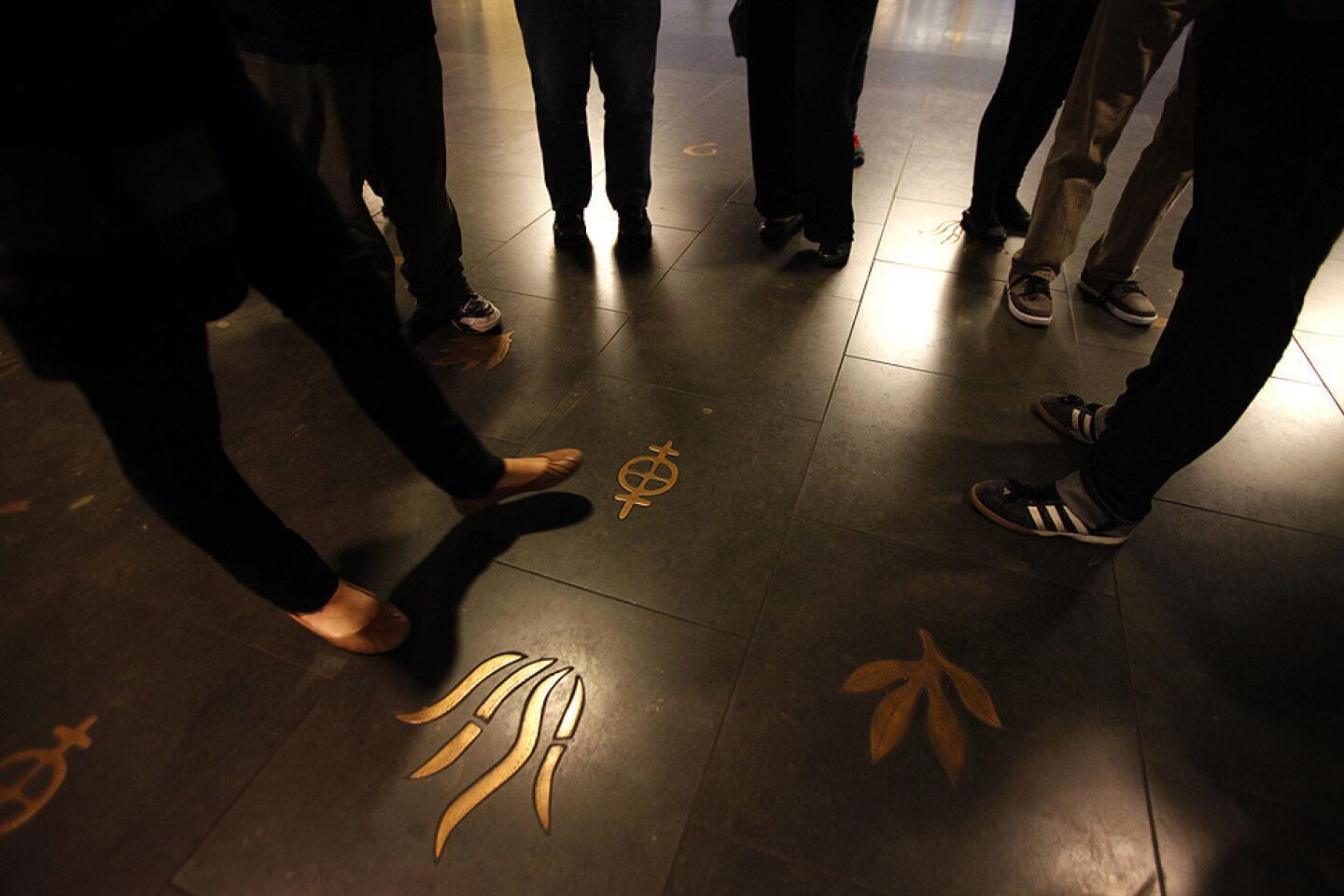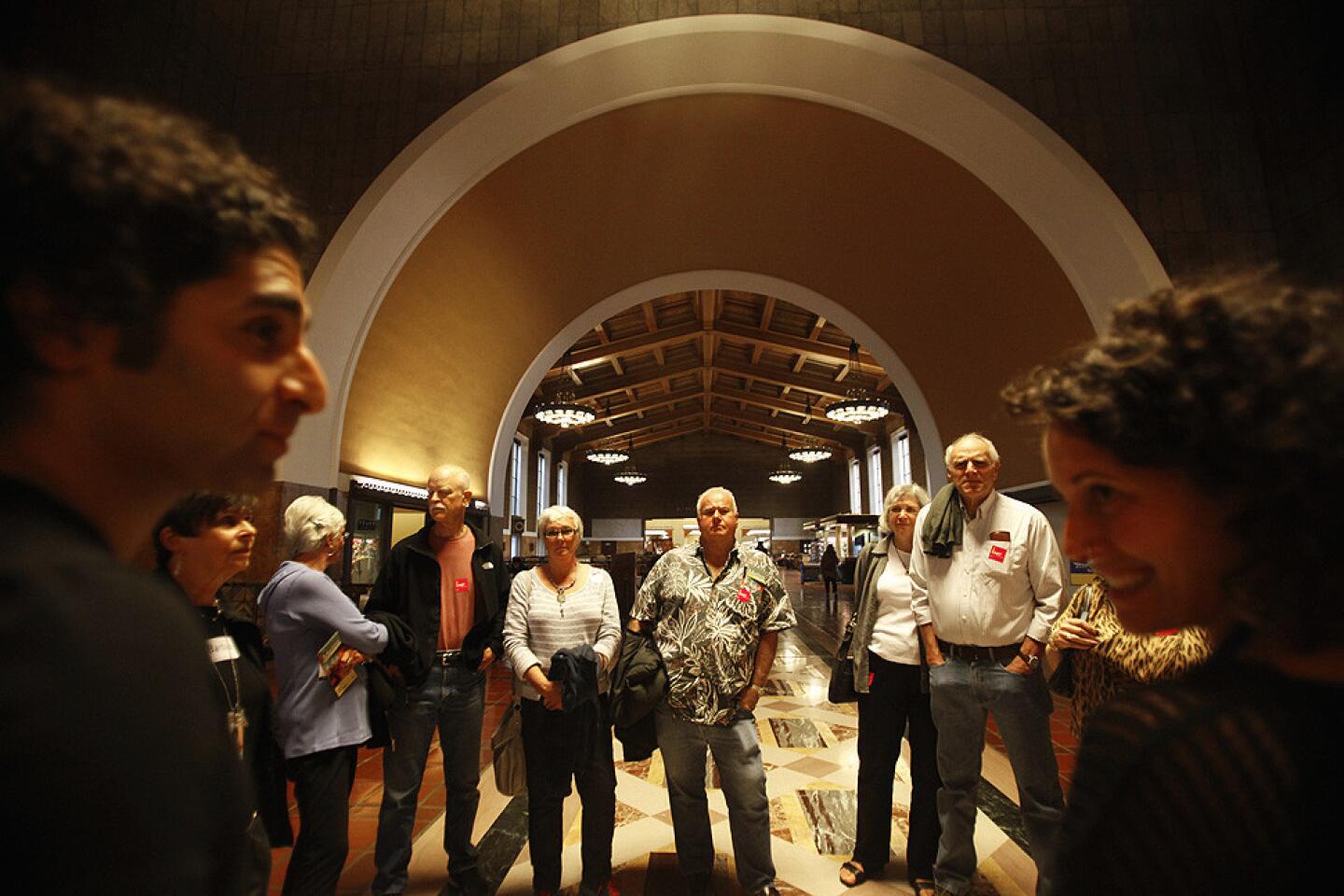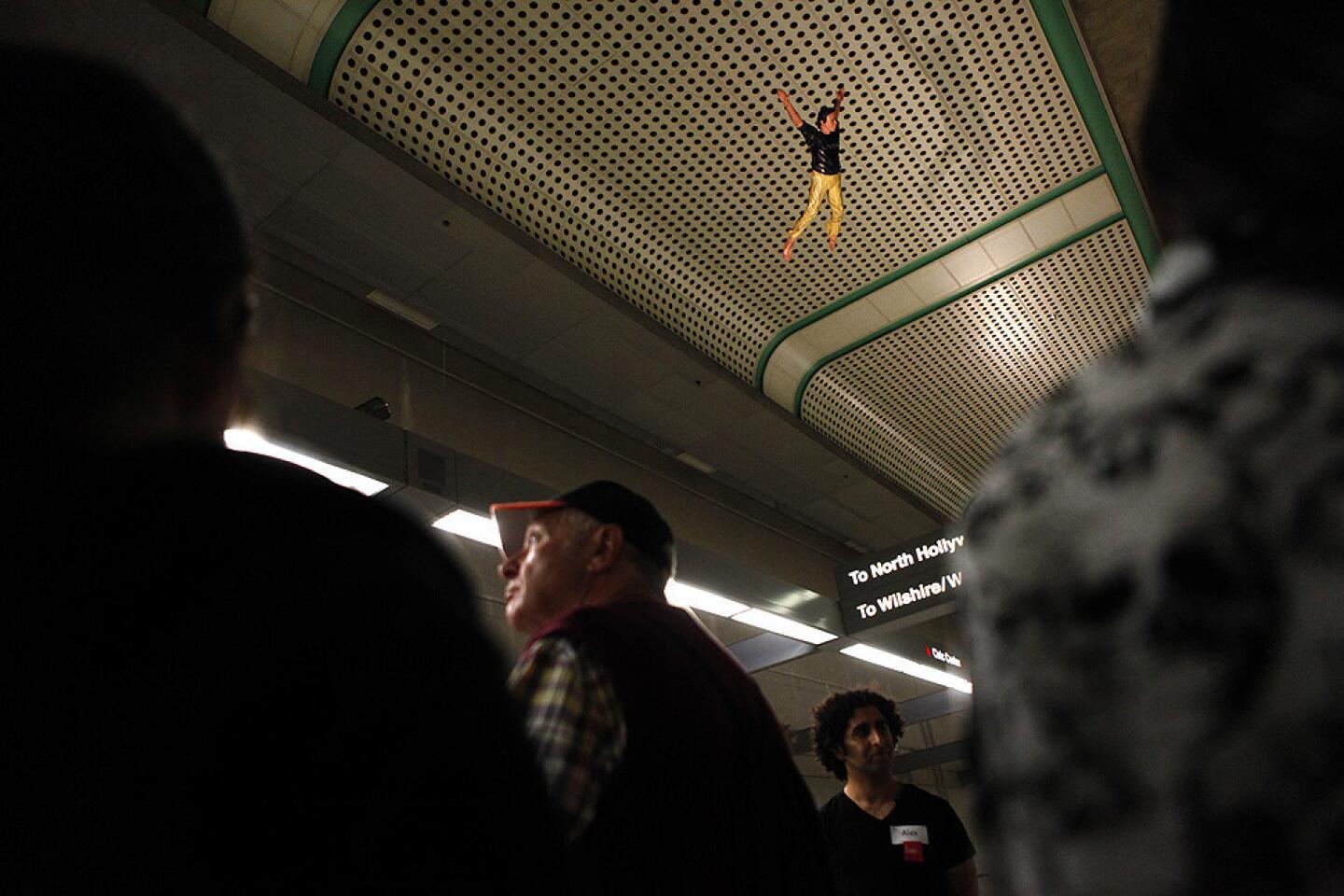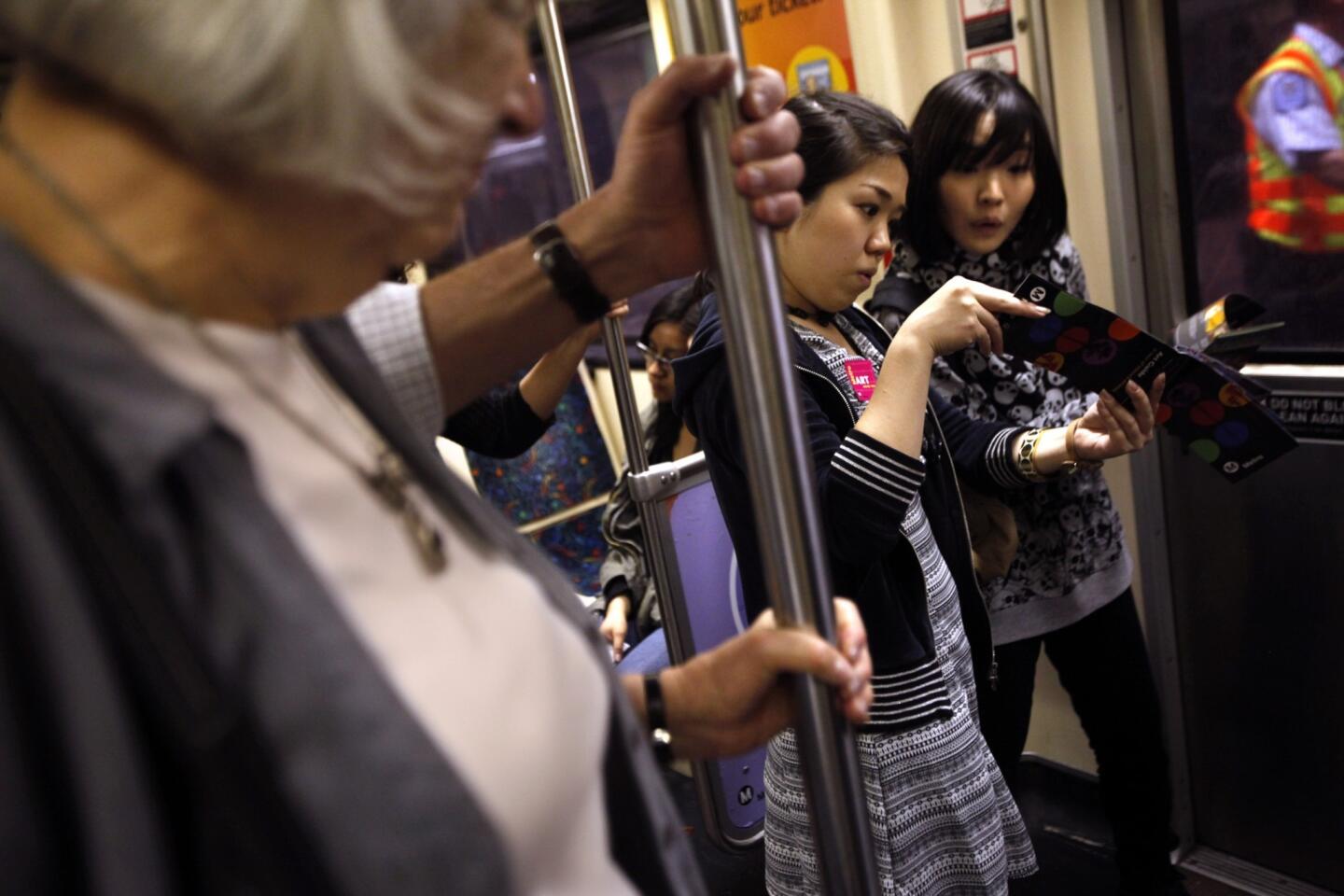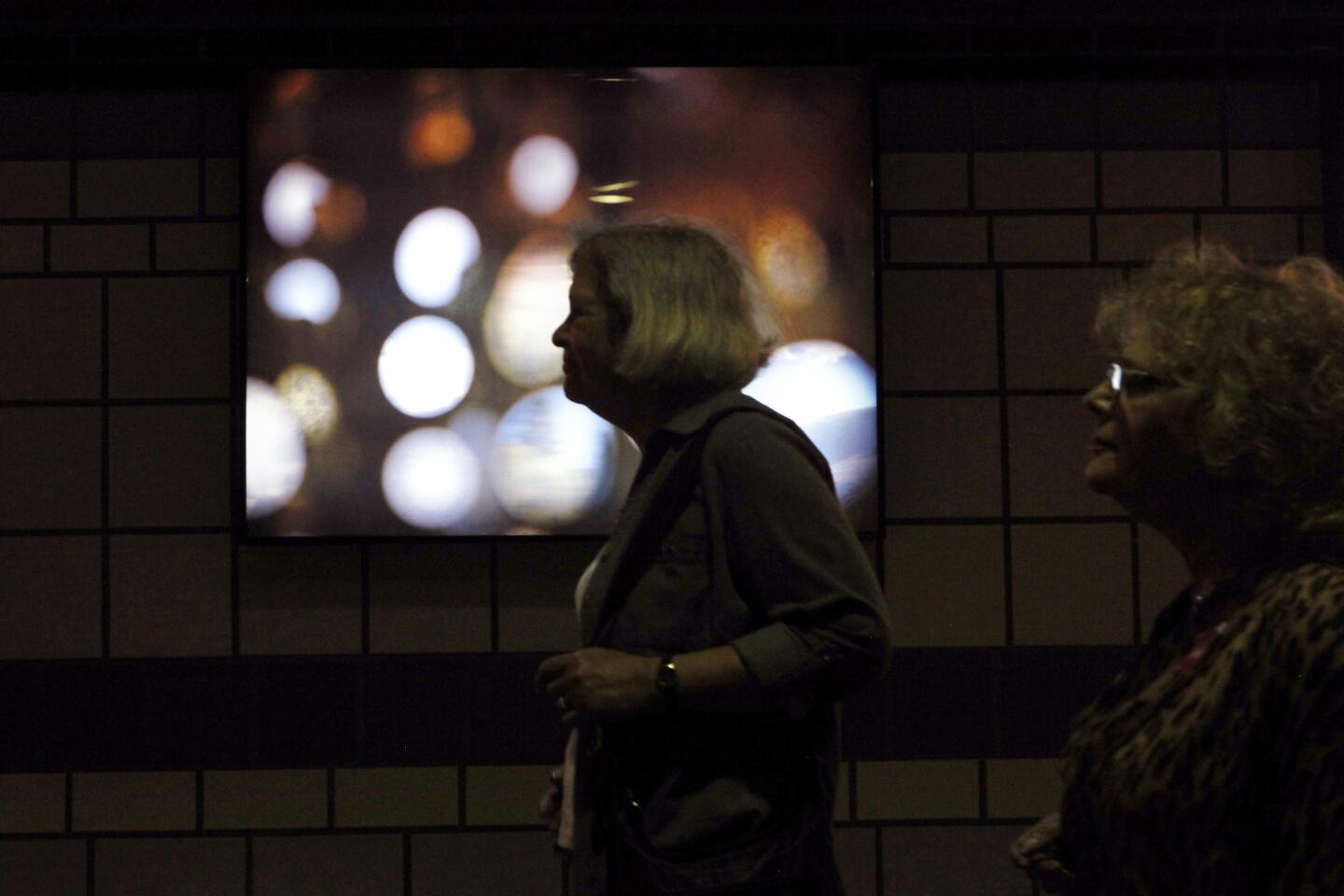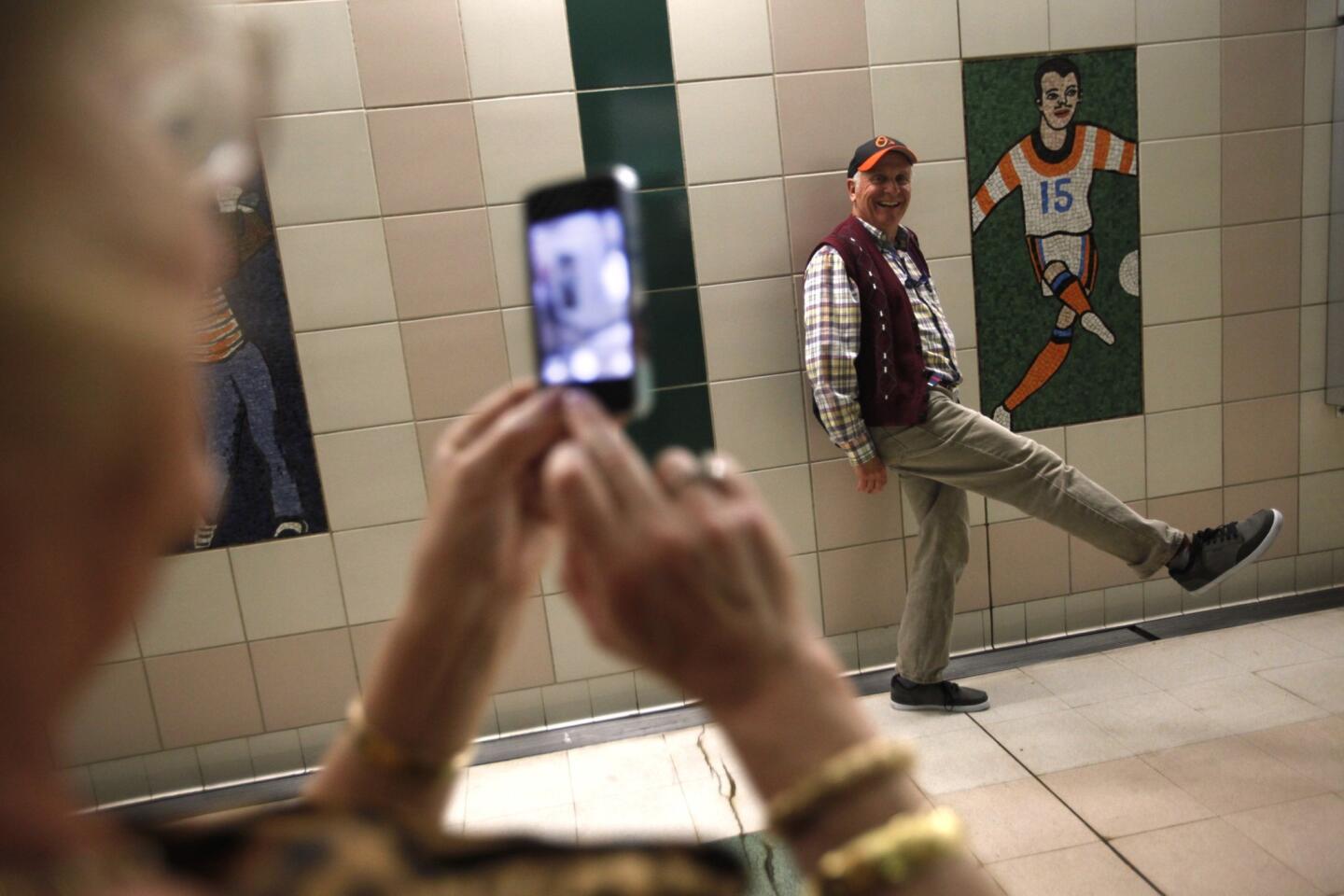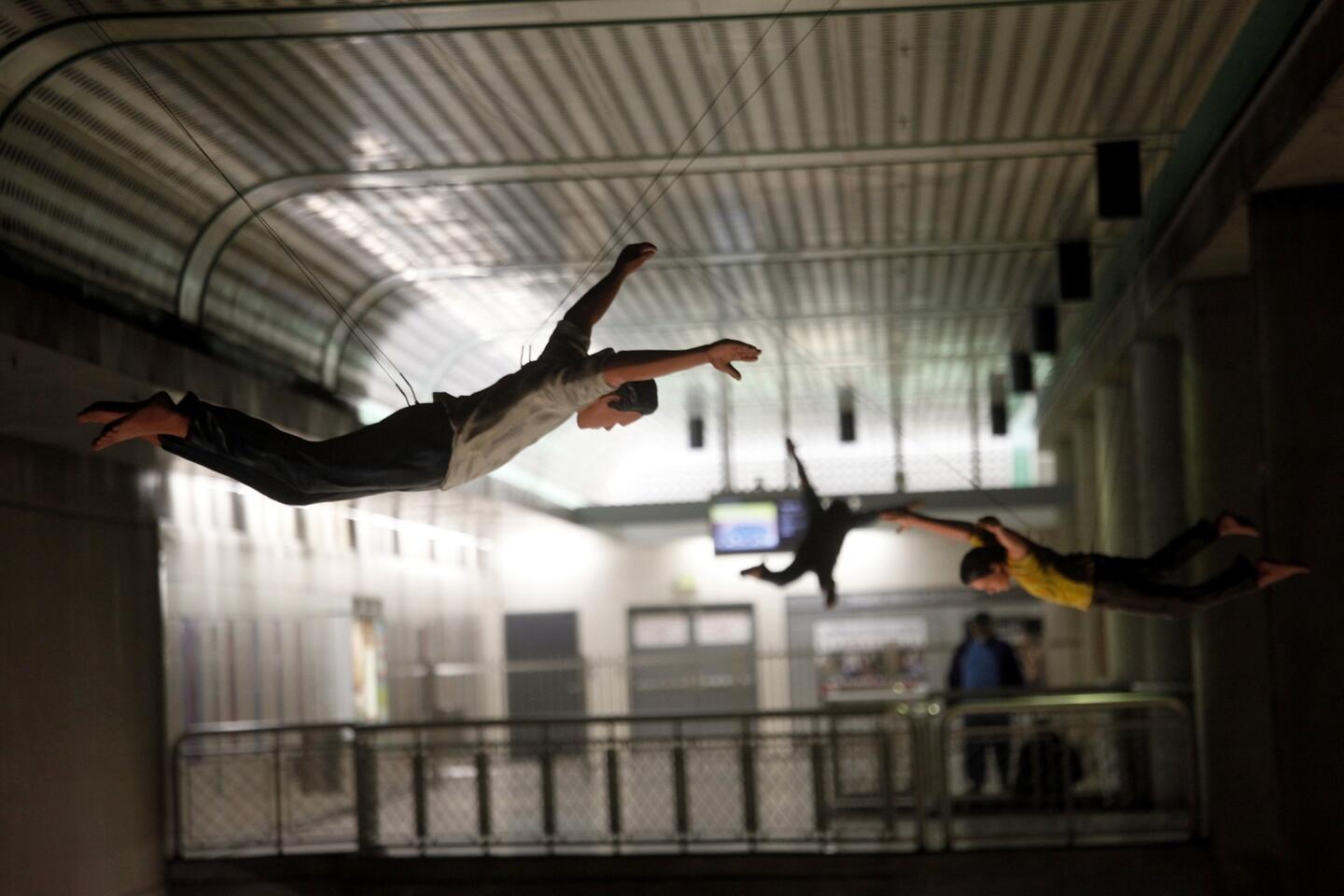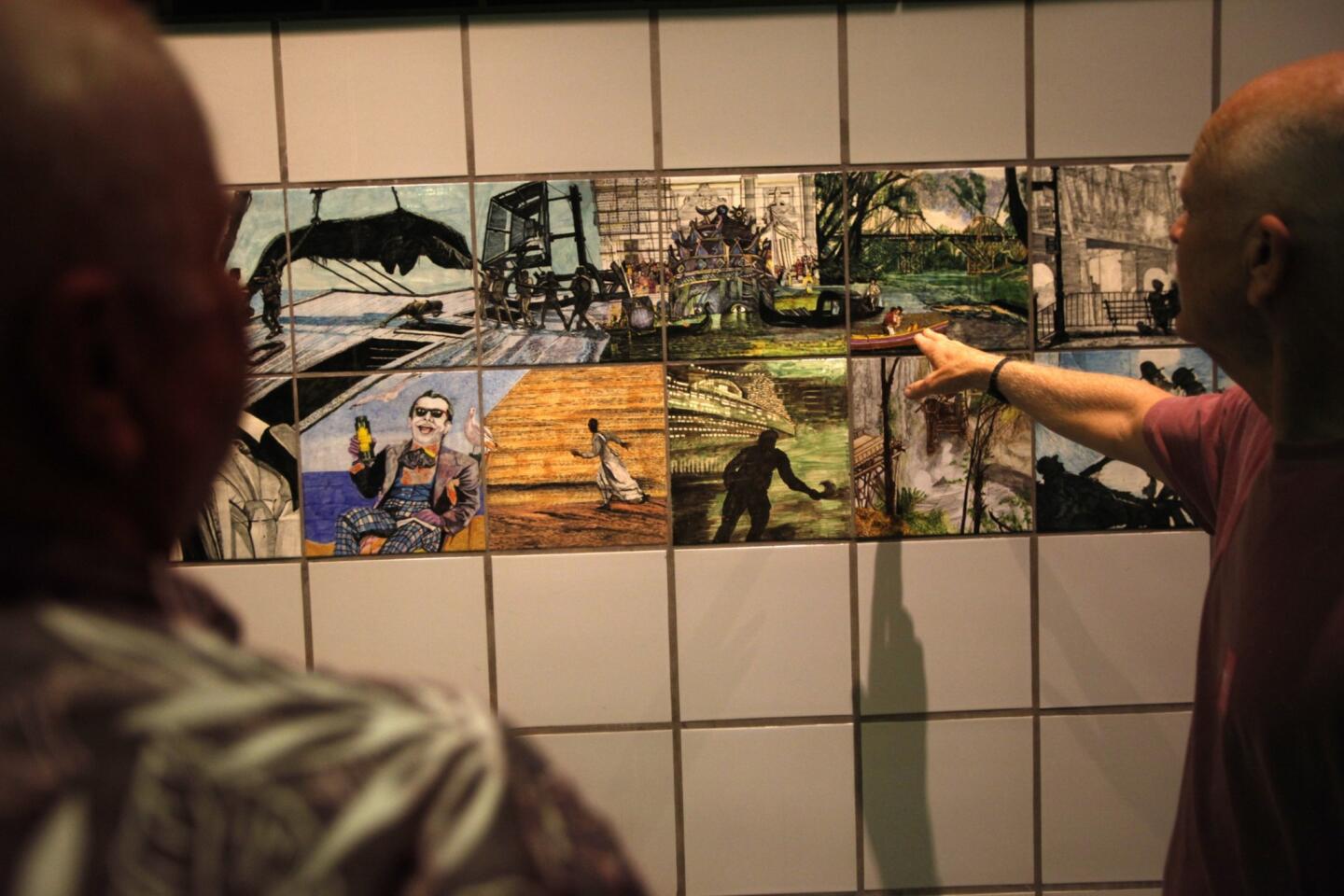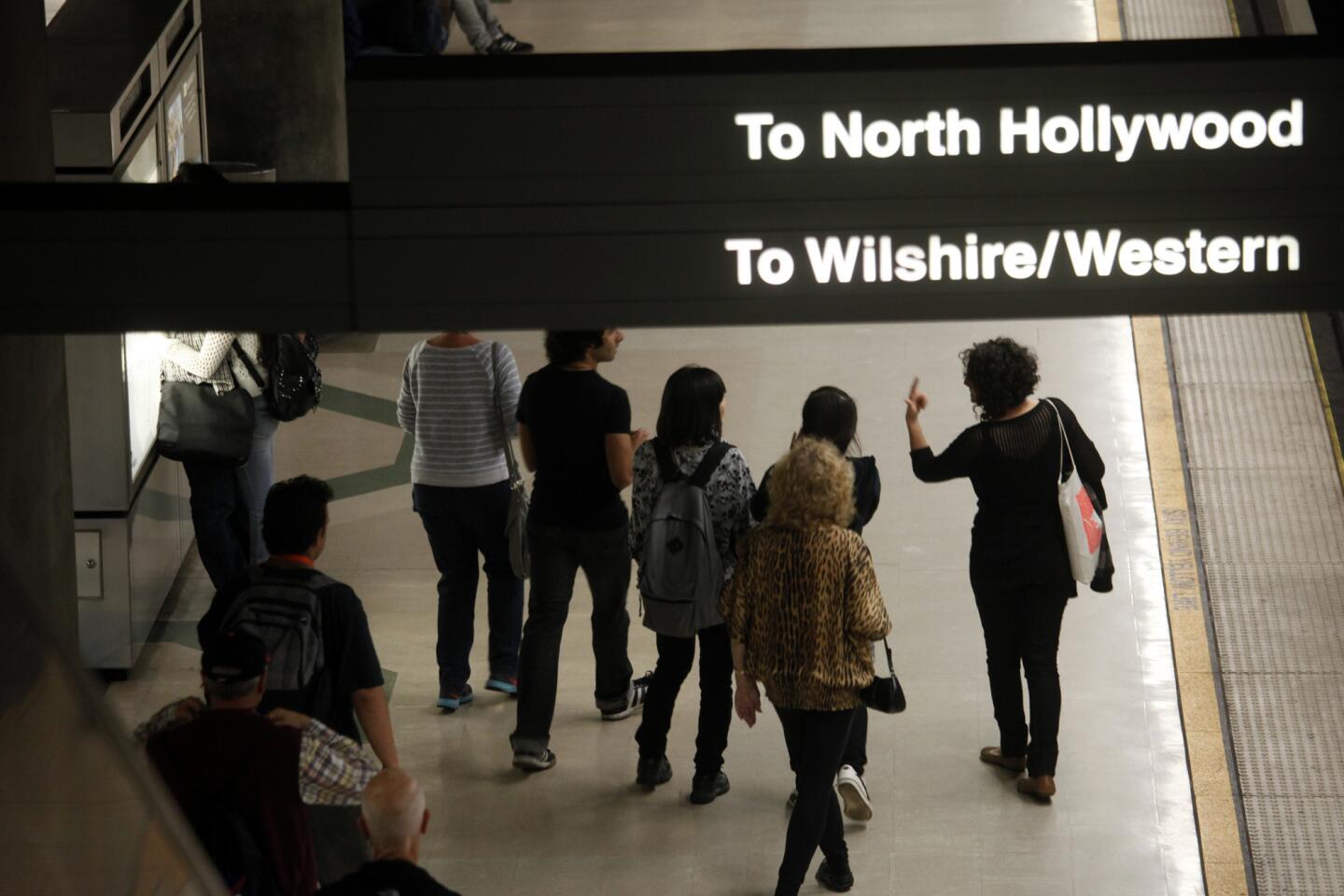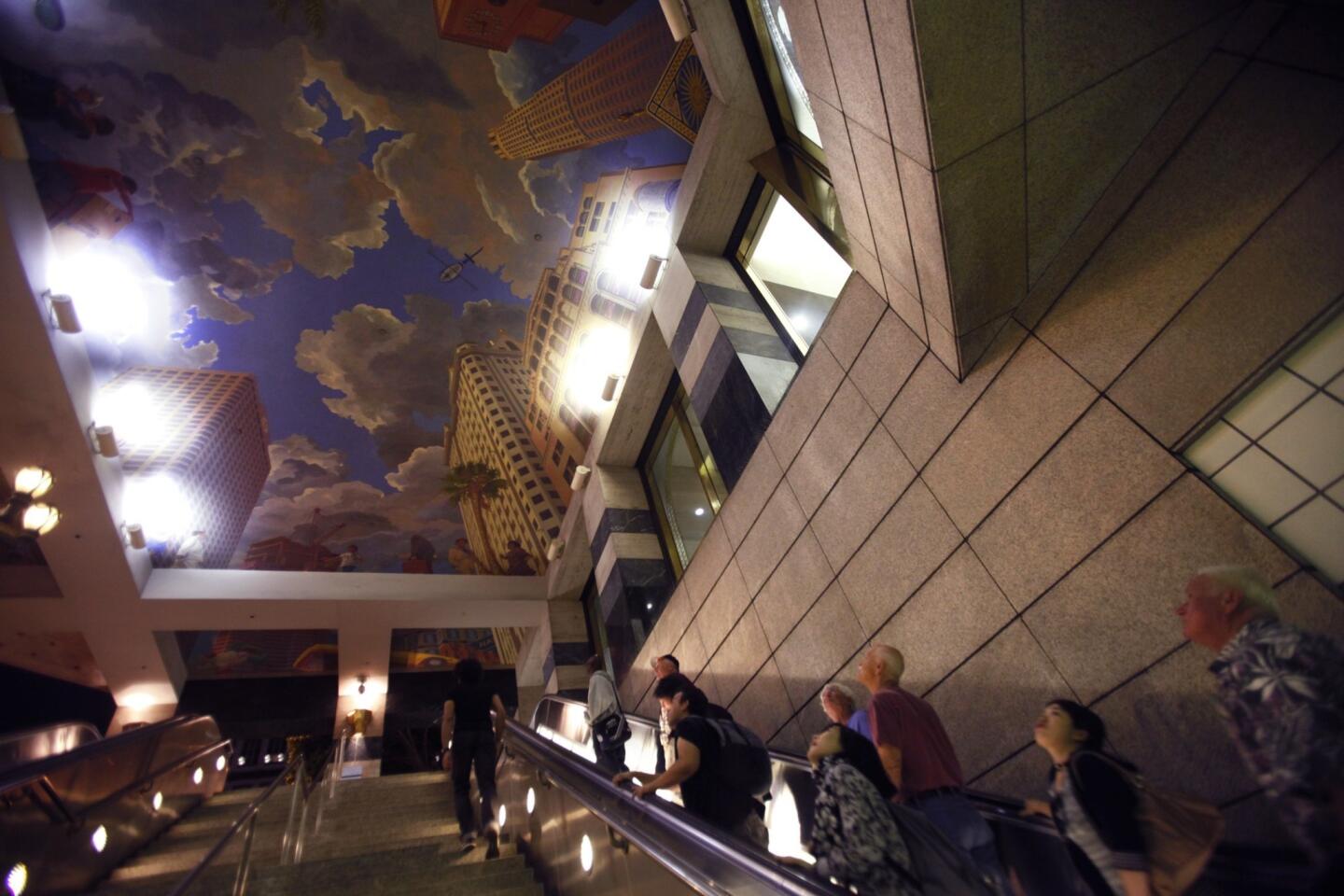Column: Teaching new Metro riders the subway of doing things
Commuters were rushing by. An update blared on a loudspeaker. An agitated young woman shouted a name again and again.
At 5:30 p.m. on a weekday, in Union Stationâs main concourse, strangers arranged themselves shoulder to shoulder in a circle.
They had come for a free tour of public art in three downtown subway stations. They had just been asked to raise their hands if they had taken Metro trains before.
Then artist Alex Amerri, one of the tour leaders, had smiled and said, âOK, so we have some people who are inexperienced.â
Not to worry, said Amerri, who also is board president of the Los Angeles County Bicycle Coalition.
In other cities with older subways, he said, âpeople are more used to being in intimate, tight spaces together. What weâre going to do is a small exercise to make sure that weâre comfortable with the possibility of rubbing elbows.â
Side by side, they took turns turning to left or right, stating their first names to the people standing next to them.
It is never too late to learn how to use your cityâs subway system. This is the real message behind the Los Angeles County Metropolitan Transportation Authorityâs âMetro Art Moves Youâ tours, offered the first Thursday, Saturday and Sunday of each month.
They are free. They are fun. They make you notice details you might otherwise walk past. They also provide, for those who need it, generous and judgment-free instruction in TAP cards, turnstiles and train-traveling etiquette.
Not everyone comes for the help. Art is the lure. But the aim is to seduce and thus inspire further public transit use.
Before setting out on this Thursday evening, each person was given a free TAP card loaded with a day pass, good for free travel on the tour and beyond, until the trains stopped running for the night.
âTheyâre reloadable,â Metro volunteer docent Emily Golan pointed out. âWhen youâre done tonight, theyâll still have the value of $1 and you can â and I hope you will â continue to refill them.â
In the group was a couple who live bicoastally, splitting time between Connecticut and Los Angeles, and their friends, another couple visiting them from the East Coast. A second group of four friends had converged from Sherman Oaks, East Hollywood and Highland Park. A Pasadena City College student, on his way home from classes, had wandered by and spontaneously joined in. A few minutes late, two Japanese tourists rushed up, on a sightseeing break from learning English in Toronto.
As they walked together, Amerri mentioned that the floor was made of marble, granite and travertine, and that the different materials had aged at different rates, with some tiles wearing away faster than others.
âYou can actually feel it with your feet,â he told the group.
Together, they tried to do so as they strolled to the northeast corner of the huge space, where Amerri pointed out the cork walls that keep it relatively quiet, the built-in cigar cutters from train travel of yore, the chirping birds, the ceiling beams that look wooden but are actually iron.
In the main passenger tunnel, as people hurried to get to Metrolink, Amtrak and Gold Line platforms, Golan gathered the group briefly in the crowded portal to the Gold Line to take in Roy Nicholsonâs paired glass-mosaic murals, showing the sun setting at different times of the year in Santa Monica to the west and the San Bernardino Mountains to the east.
Part of the joy of Metro art was that it could be found in ârather unusual places,â she said, as the group studied the mountains mural, at the base of a set of stairs and at ceiling level, above a line of fare machines.
âThe art is everywhere,â Golan said, âand the art will take us by surprise and shock us.â
In Union Stationâs east portal, where the installations celebrate Los Angelesâ early history, the group played follow the leader, forming a cheerful, undulating line that stopped as each person waved jazz hands â palms forward, fingers splayed â at art they particularly liked.
In the course of an hour and a half, they would play more â and learn more.
That the granite benches on the platforms for the Red Line and the Purple Line below Union Station echoed the vintage leather chairs in the main concourse above.
That the life-size figures floating above the platform at Civic Center were all self-portraits of the artist Jonathan Borofsky, who put numbers on their chests because he numbers all the works he produces.
That subway travel is easy, once you know a few basics.
At a row of TAP machines, the docents demonstrated how to load additional money. Golan told people to tap on the right as they went through the turnstiles.
Amerri demonstrated TAP creativity, showing how some people tapped gently, some did the bump with their cards in their back pockets and others executed the âleap of faithâ move he favored, flinging themselves forward, hoping they had enough cash on their cards to make the trip.
Everyone laughed. Some who were less familiar with Metro asked questions.
Tomoko Masuda, 32, of Tokyo, and Hitomi Imura, 27, of Osaka, just smiled and nodded knowingly.
The two tourists, who had been traversing L.A. car-free for a week, already were old hands.
Follow City Beat @latimescitybeat on Twitter and at Los Angeles Times City Beat on Facebook.
More to Read
Sign up for Essential California
The most important California stories and recommendations in your inbox every morning.
You may occasionally receive promotional content from the Los Angeles Times.
